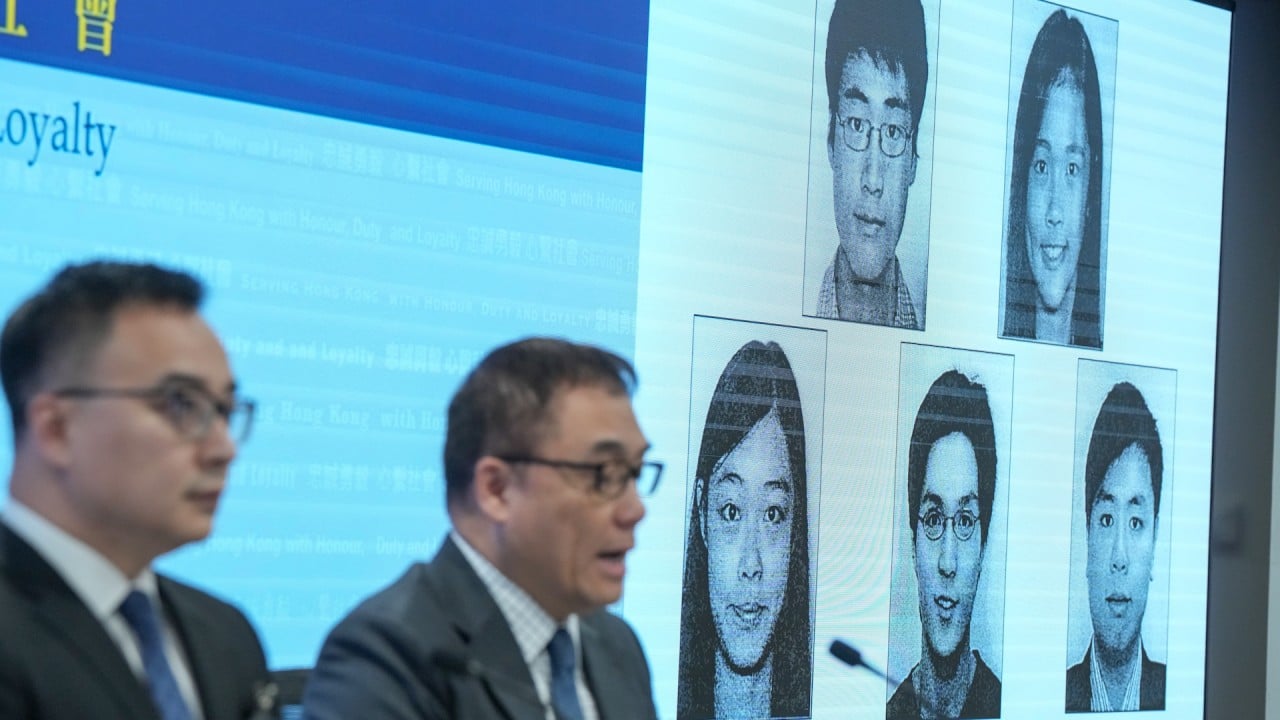
Hong Kong politics in 2023: major trials, HK$1 million bounties on fugitives and an election with record-low turnout
- 2023 opened and closed with high-profile national security trials, as well as big firsts for city leader John Lee and district council revamp at other points
- The year also sets the stage for political scene in 2024 as city authorities vow to press ahead with implementing Hong Kong’s own national security law
On another front, a key Beijing official overseeing Hong Kong affairs made a fact-finding trip to the city and said residents should choose ways other than protests to express their views. Xia Baolong also urged Hongkongers to stay vigilant and protect national security.
The city this year also held its first district council election under revamped rules that allow only “patriots” to contest. It drew a record-low turnout of 27.54 per cent, despite months of efforts by government officials encouraging people to vote.
Here is a look back at key events in the city’s political scene over 2023.

47 opposition figures on trial
The decision of the three-judge court is not expected before March of 2024 at the earliest. Sixteen accused who denied the charges will find out whether their conduct constituted a “grand strategy of subversion” in breach of the national security law.
The other 31 pleaded guilty to conspiracy to subvert state power. All 47 face a maximum of life imprisonment.
Thirty-five of the 47 are currently remanded, with some having been in prison since March 2021.
Hong Kong 47: who are the key defendants in national security trial?
Media mogul Jimmy Lai’s trial begins
The 76-year-old media mogul is facing three conspiracy charges relating to sedition and collusion with foreign forces for allegedly drawing international sanctions against Hong Kong authorities, and inciting public hatred during the anti-government protests of 2019.
Lai has spent nearly three years in custody. The case is expected to take at least 80 days.
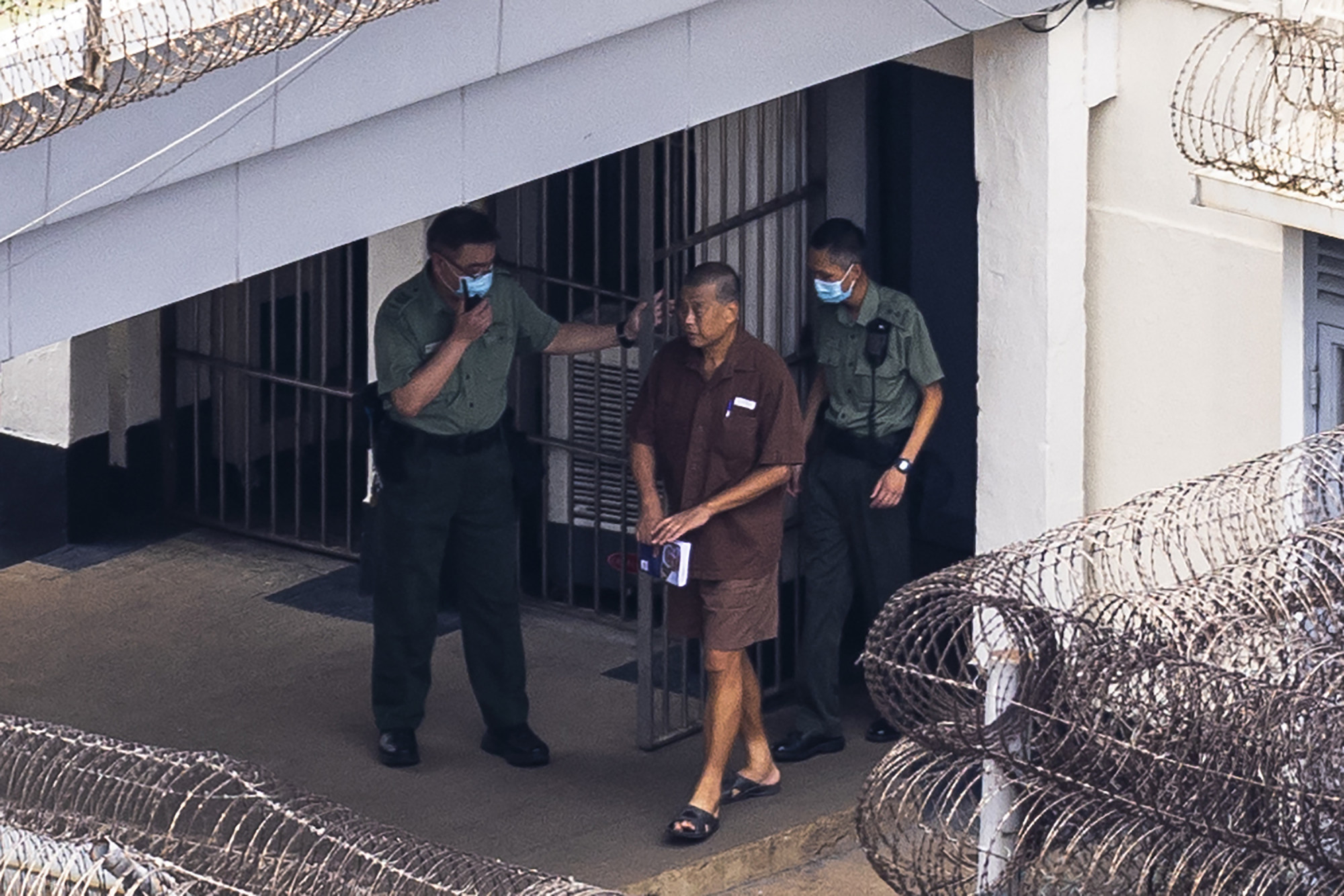
HK$1 million bounties on 13 wanted activists
The first eight include former legislators Nathan Law Kwun-chung, who is in the UK, and Ted Hui Chi-fung, who is now in Australia. The others were former lawmaker Dennis Kwok Wing-hang, unionist Mung Siu-tat, lawyer Kevin Yam Kin-fung, and activists Finn Lau Cho-dik, Anna Kwok Fung-yee and Elmer Yuan Gong-yi.
Some Western countries condemned Hong Kong’s action.
British Foreign Secretary David Cameron said his country would not “tolerate any attempt by any foreign power to intimidate, harass or harm individuals or communities in the UK”, while the chairs of two bipartisan US congressional panels urged Secretary of State Antony Blinken to impose sanctions on the seven Hong Kong and Chinese officials involved in the matter.
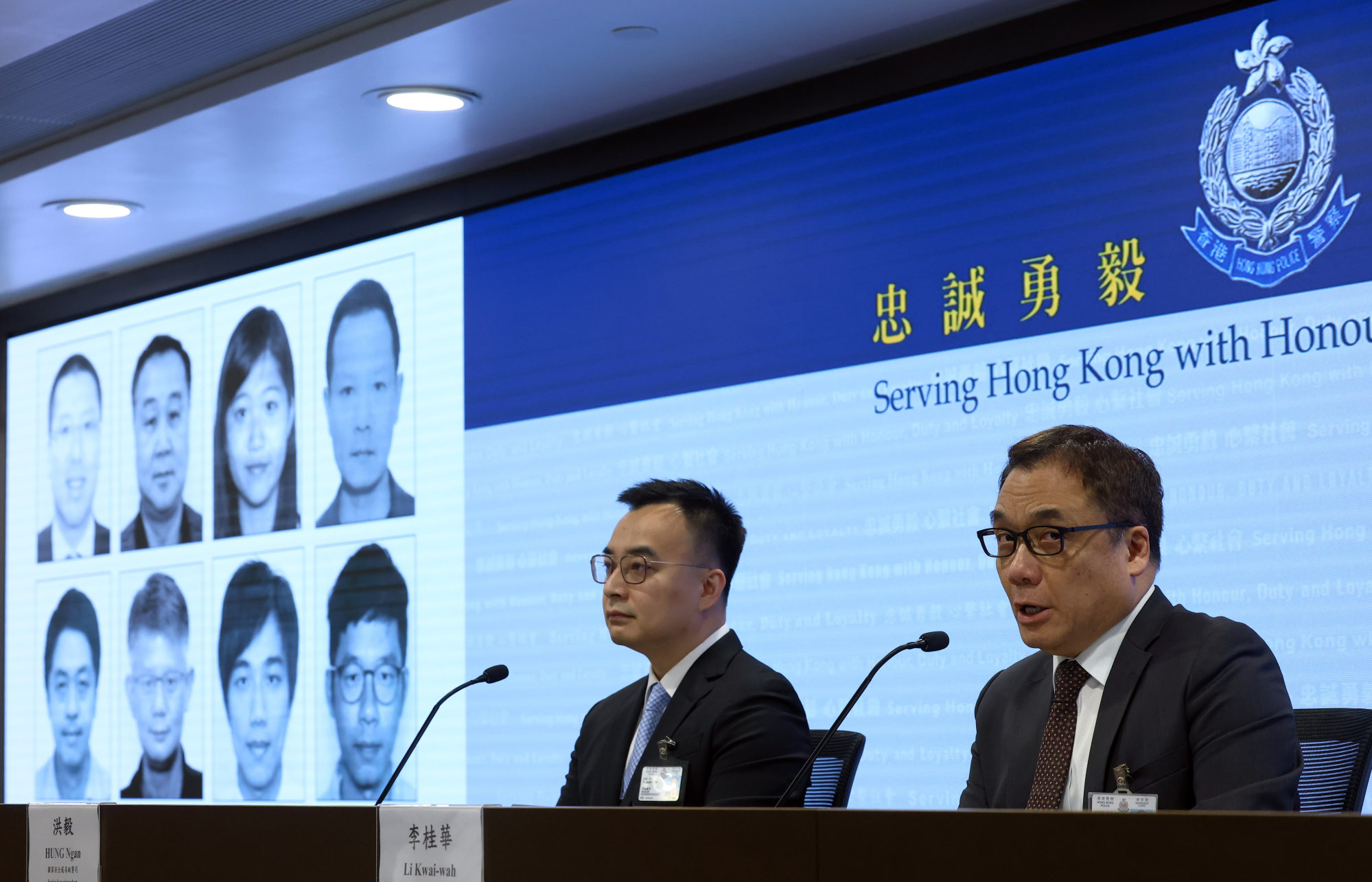
Agnes Chow not returning to Hong Kong
She was required to report to police by the end of December over a national security case.
Chow said police told her earlier this year that she could have her passport back and travel to Canada if she went on a trip to Shenzhen, where they would arrange for her to learn about China’s achievements.
Chief Executive Lee said her “complete deception” disappointed those who had treated her leniently. Others said her decision not to return was likely to affect how the authorities handled other similar cases in future.
Agnes Chow ‘not the only national security law suspect allowed to leave city’
John Lee stays away from Apec meeting
He said later that the US and Hong Kong could do with a more positive relationship but there was nothing he could do to counter the actions of an “unreasonable bully”.
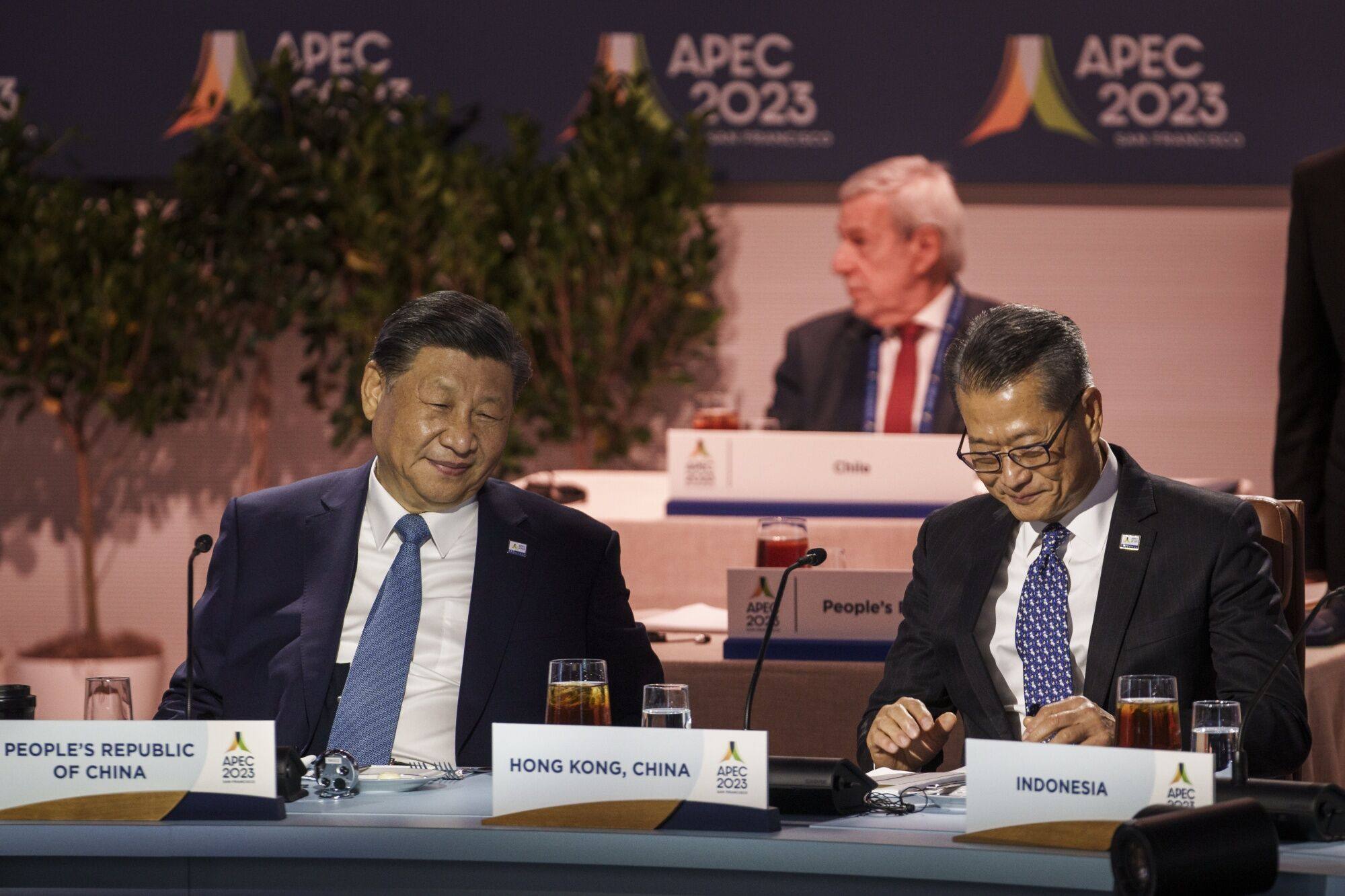
District council election
No opposition hopeful managed to gather the required support to contest the December 10 race. The revamp saw the number of directly elected councillors slashed to just 88 in 44 enlarged geographical constituencies.
Three area committees stacked with Beijing loyalists chose 176, city leader Lee appointed 179 and rural leaders filled the remaining 27 seats.
Authorities said the revamp was meant to “depoliticise” the municipal-level bodies. In the last election in 2019, at the height of anti-government protests, opposition candidates scored a landslide victory.
Hong Kong’s district councils to be chaired by government officials
Code for civil servants
With “upholding the constitutional order and national security” as one of 12 core values, the code emphasises the importance of maintaining political neutrality in support of the incumbent chief executive.
Some public servants voiced concerns that the stringent requirements might lead to them deleting their social media accounts. The government insisted the recommendations were not meant to discourage civil servants from expressing their views, but to remind them to exercise discretion in every public action.
The government also released a set of guidelines for evaluating the 470 new district councillors from January 1. Among them: councillors must attend at least 80 per cent of general meetings each year, submit an annual work report and log at least 40 hours a week. Those who fall short risk disciplinary action, including suspension.
Talks on Hong Kong’s economy meaningless without national security: Eric Chan
Xia Baolong’s fact-finding mission
He called on residents to resort to means other than protests to voice their views, saying protests could be “exploited or manipulated by some with an ulterior motive”.
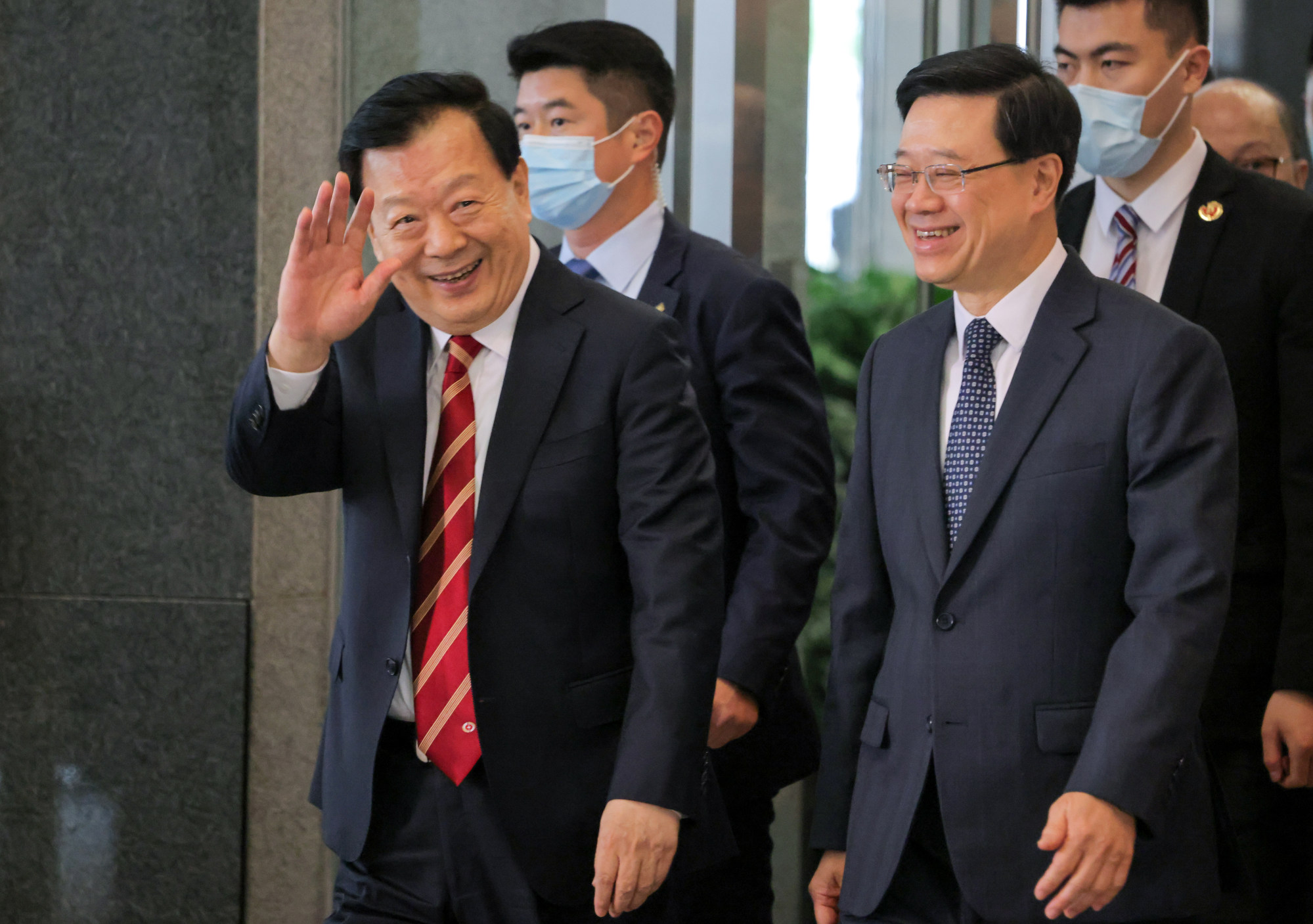
Top Beijing office on Hong Kong affairs revamped
The new overarching body, the “Hong Kong and Macau Work Office of the Communist Party Central Committee”, has Xia Baolong continuing as director, assisted by five deputies, including Henan’s deputy secretary and provincial security chief Zhou Ji.
The greater importance of Hong Kong to China was said to be reflected in the new hierarchy of the revamped ministerial-level office.
Why did Beijing ‘elevate’ its top office for Hong Kong affairs?
Firsts in John Lee’s visit to Beijing
Previously, the two top leaders were briefed separately by Lee on these annual visits.
President Xi Jinping praises Hong Kong leader over national security, district poll
Another major change was the line-up of mainland officials at the briefing, which for the first time included four of the seven members of the Politburo Standing Committee, including Cai Qi, director of the General Office of the party’s Central Committee, and Chinese Vice-Premier Ding Xuexiang, leader of the Central Leading Group on Hong Kong and Macau Affairs of the party’s Central Committee.
Observers said the new arrangements reflected Xi’s elevated role and a clearer, more direct reporting line for the city after Beijing’s top office overseeing Hong Kong affairs was revamped to report to the Communist Party leadership in March.
Hong Kong to define state secrets according to city’s needs, minister says
Looking ahead – Article 23
He and his administration had warned of what they called “soft resistance”, and said national security threats remained lurking in the city despite the perceived calm in society.


